On 21 September, room XVIII at the Palais des Nations became a space for empowerment, celebration and inspiration. The sixth edition of the Geneva Peace Talks took place that day, on the occasion of the International Day of Peace. Under the theme “Peace Without Borders,” this year’s edition showcased nine inspirational speakers working at the grassroots level in the Middle East, West Africa, South America and Europe.
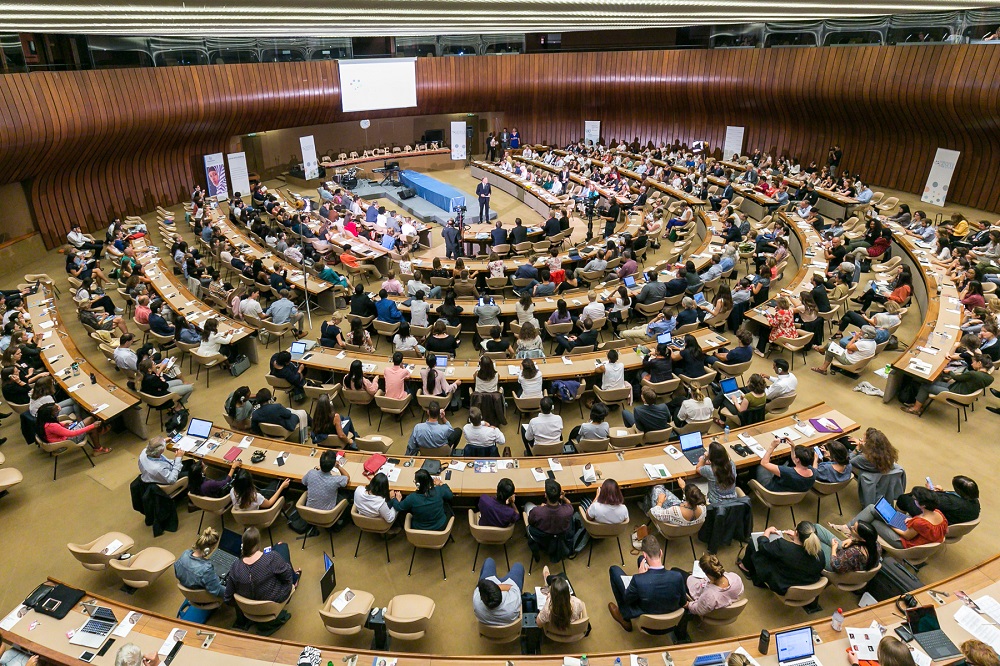
Geneva Peace Talks 2018. Photo credit: Antoine Tardy for Interpeace
The event started with the welcome remarks of Director-General of the United Nations Office at Geneva, Michael Møller. He emphasized the importance of grassroot-level actions to promote sustainable peace. Mr. Møller reminded us that, exactly a year earlier, former Secretary-General Kofi Annan participated in the fifth edition of the Geneva Peace Talks. When addressing the Geneva Peace Talks 2017, late Kofi Annan encouraged youth to become the change makers of today. In his own words, “Young people can make a difference. You have the capacity to lead. Leadership starts in your community, when you see that something is wrong and decide to do something about it.” His empowering message recorded a year earlier was broadcasted following Mr. Møller’s remarks.
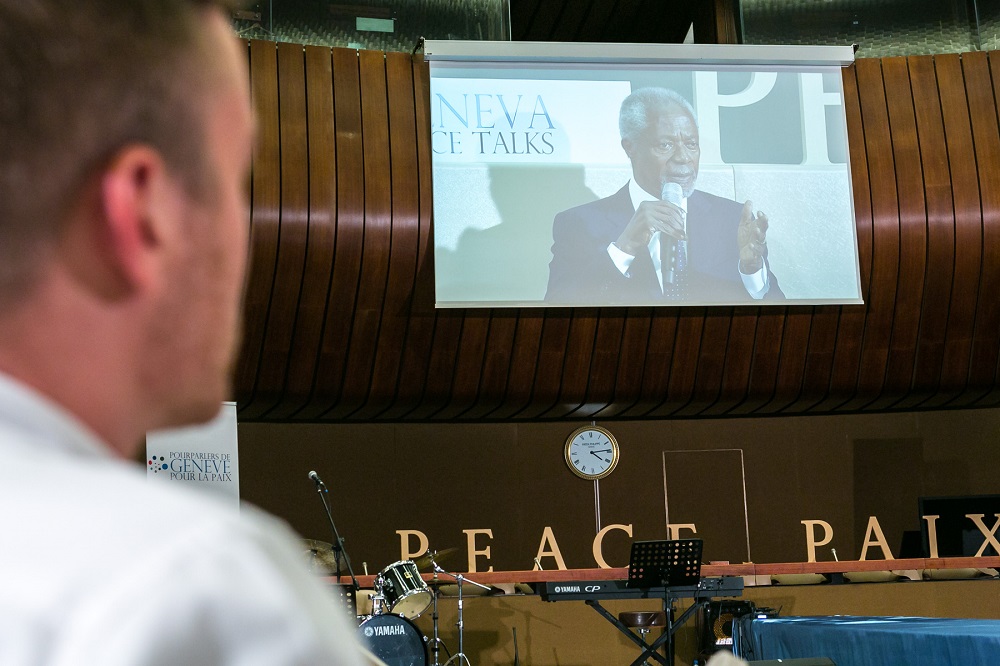
Broadcast of Kofi Annan’s participation at Geneva Peace Talks 2017. Photo credit: Antoine Tardy for Interpeace
Having been reminded of the agency and power of youth, audience members were introduced to the first segment of the event: the role of youth in promoting peace beyond borders. The first speaker was Aya Mohammed Abdullah, a student and delegate of the Global Youth Advisory Council of the United Nations High Commissioner for Refugees. Having been a refugee for most of her life, Aya expressed the need for refugees to have access to education; she said “We want kids to be surrendered by books, not guns. We want more leaders in this world, not just victims. We want the generation to be educated.” Psychotherapist Nino Rizzo spoke afterwards and shared an important message on building inner peace from a young age: “what allows us to interact and be authentically close to others is being well within our own borders. This enables us to have the ability and freedom to cross borders.” The final speaker of this first segment was Jasminko Halilovic, founder and director of the War Childhood Museum. Jasminko reminded us that “Children understand that things don’t have to stay the same because they don’t have to stay the same, they grow. While we cannot grow anymore like children, we can still choose to grow together in hope and in peace.”
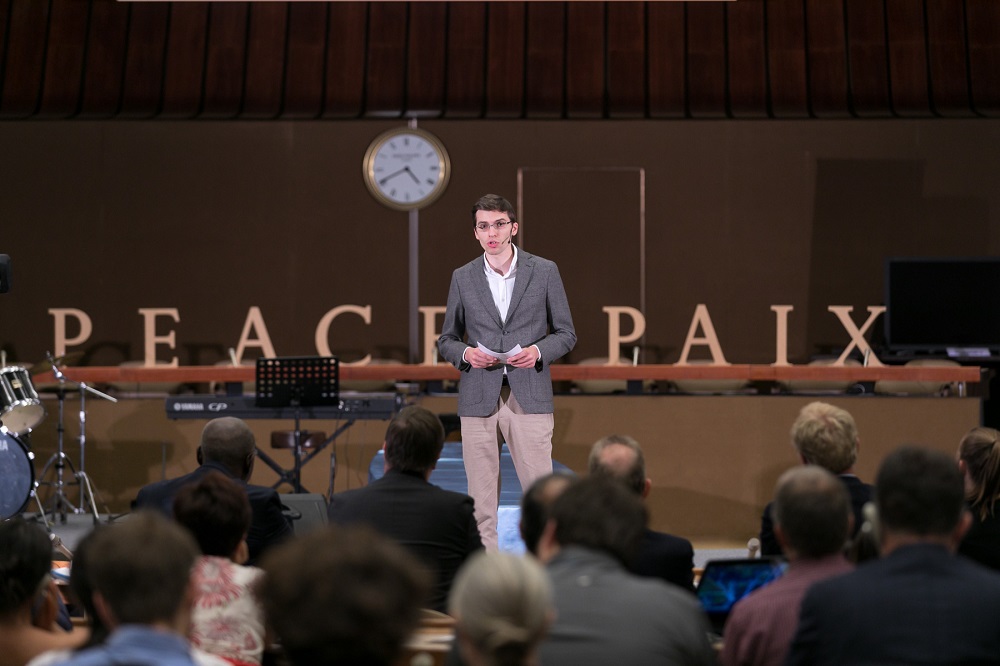
Jasminko Halilovic at the Geneva Peace Talks 2018. Photo credit: Antoine Tardy for Interpeace
The second segment of the event focused on the personal and professional experiences of inspiring women who are giving voice to and fighting for those we rarely hear from. First, we heard from gynecologist and founder of women right’s organization medica mondiale, Monika Hauser. She shared her experience working to bring justice to women survivors of sexual war violence; she reminded us that “Until we have gender justice, there will be neither development nor peace.” Fondation Hirondelle’s representative in Niger, Pauline Bend, closed this second segment by emphasizing the importance of inclusive media. In her own words, “We must connect to people whose voices we never hear from, restore their dignity and place them at the center of the story.”
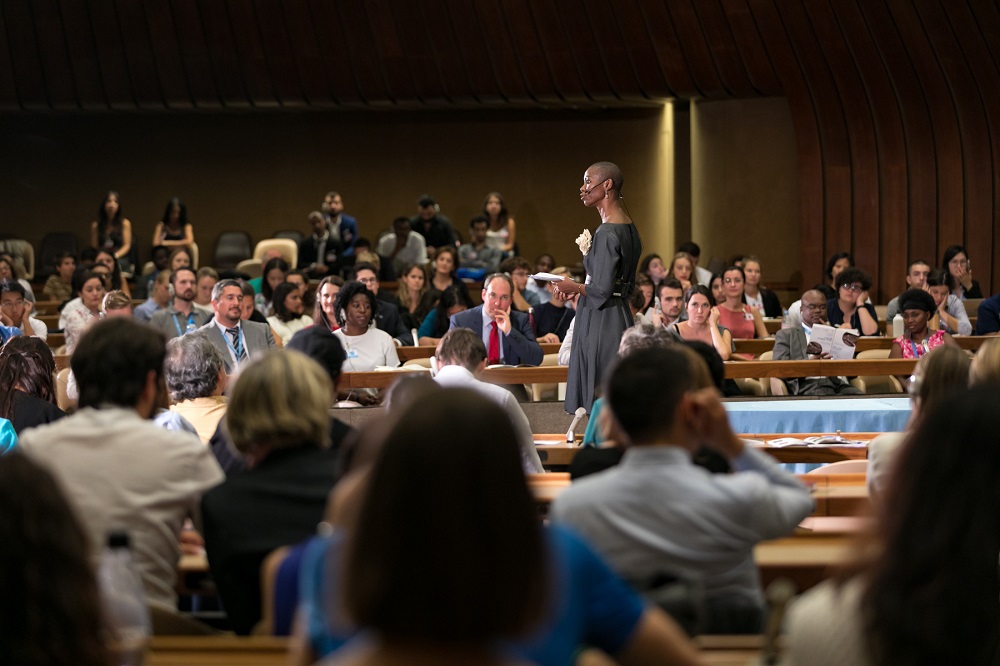
Pauline Bend at the Geneva Peace Talks 2018. Photo credit: Antoine Tardy for Interpeace
Following the musical performance of the UN Jazz Band, our final speakers touched upon holistic approaches to promote peace. First, peace practitioner and researcher Diana García reminded us that “uncertainty is life itself” and encouraged us to embrace uncertainty in order to promote sustainable peace. Then, Wala’ Alsmadi and Zakaria EL Baba shared practical lessons based on their experience working with Middle Eastern youth in the organization Generations For Peace. They have learned that if “we expect the peace we are building to outlive us, we must be actively passing it on by crossing generational borders, building not only peace, but also peace builders who can continue that process.” Social worker Hacene Ouahmane closed the event by sharing the acts of care and love that are behind ensuring the wellbeing and integration of asylum seekers in Geneva.
Interpeace President Scott M. Weber summarized the night with the following concluding remarks: “We heard that the most important borders we have to traverse are in our minds and in our hearts.” The evening closed with Aya’s surprise performance of a traditional song in Arabic.
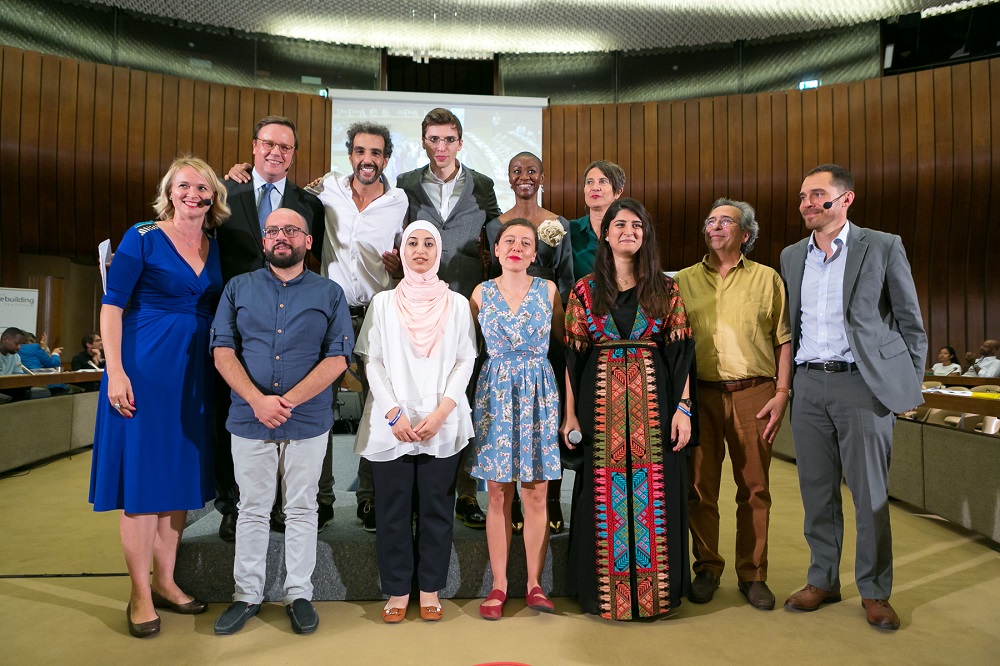
All the speakers at Geneva Peace Talks 2018. Photo credit: Antoine Tardy for Interpeace
The full event and the individual talks are available at www.peacetalks.net
Pictures of the event and photobooth are available at the Peace Talks Facebook page.